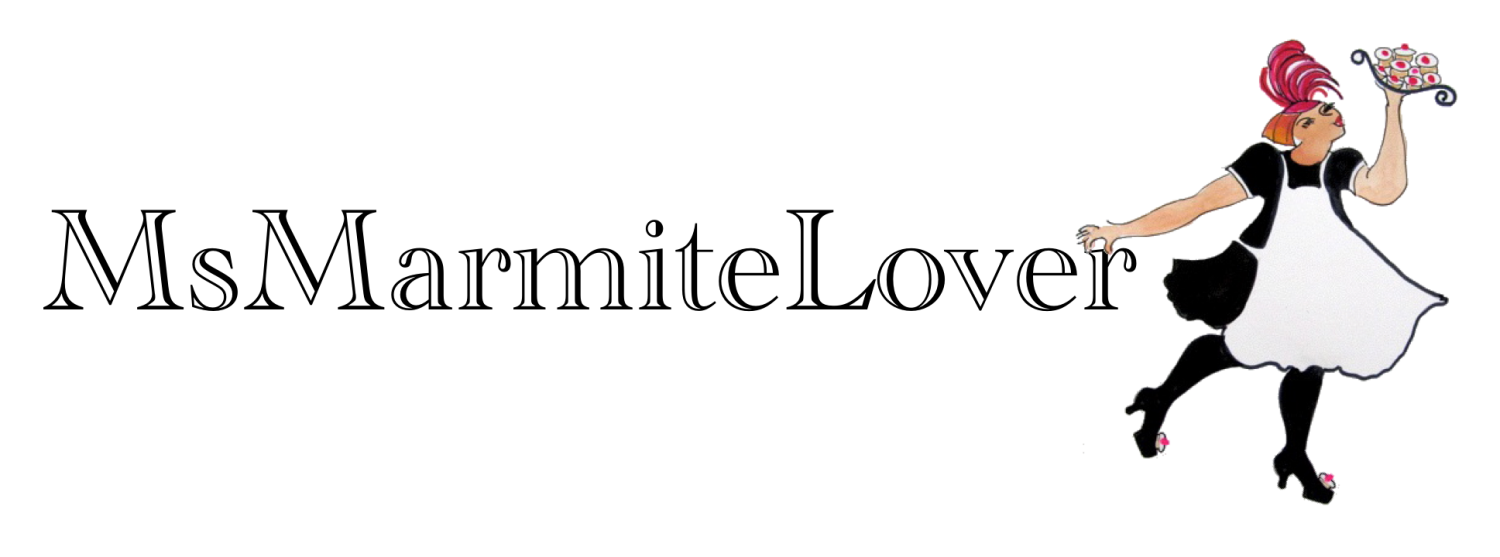I interviewed Thad Vogler, author of By the Smoke and the Smell, over Skype while he was sat in a car outside one of his bars in San Francisco. It was early in the morning his time, and tea time in the UK. I could see that over there it was sunny, there were blue skies visible from his car window. This week in London, the temperature has hovered around 0ºC.
Thad is an imposing presence, this was most detectable in his voice; he has a radio voice, a deep and rumbling baritone.
How do you feel about being nominated?
I was unbelievably excited.
Is this your first book? It’s really well written.You are obviously a natural writer.
Thank you. I was amazed what a collaborative process the book was. I’ve heard that, but editors make all the difference.
What struck me is it very much is a memoir. It’s quite emotional and very frank.
I hope so. I guess. When I was approached to write the book, I thought there is an abundance of the standard bar books with a collection of recipes and the ethos of the bar person and there are enough of those. The woman who became my agent, proposed something more along the lines of a memoir. That sounded like fun to write.
In the whisky chapters, you talk about very personal subjects, your relationship with your stepfather. It’s very touching. And also you talk about trying to have children. How did that work out in the end?
Still at it. We haven’t had the desired result yet, It’s been a surreal experience, It’s a very modern experience. We are right in the middle of IVF as we speak, this week. It’s an interesting time.
My sister had it. It’s hardcore. It’s difficult.
It’s hard for the women. So much pressure and expectation. I’m just amazed at how comfortable people are asking ‘Why don’t you have children? When are you having children?’ Maybe that’s more of an American thing. It seems like a lot of pressure on women.
It’s physically hard on women.
Definitely. All on the woman.
You have two bars, the Trou Normand and Bar Agricole, I like the names. The ‘trou normand’ has helped me out with big meals many a time in France.
No kidding.
Your book makes me want try all the spirits in your book. Very evocative. What’s your favourite spirit?
My favourite is mezcal right now. It’s what I most like to have in front of me, smelling and tasting.
Do you go through periods where you get little obsessions? Or is it always mezcal?
No. It’s very much like music, it goes in phases, You may have an all-time favourite but you are always interested in a different thing. There’s only so much that’s excellent.
For a couple of years I was really trying to get up to speed on scotch and was very interested. Although it was my favourite, the more I learned, the more disillusioned I became.
There’s a number of ways to consider it: there’s the business of liquor which is always interesting but maybe a little depressing, considering the market place, where it’s going to sit. What’s happening? Is it growing? Is it being changed? What’s happened with scotch the last 20 years is fascinating.
But yeah right now for the foreseeable future you just have access to something really amazing with mezcal right now, these tiny, tiny producers. You always get a sense of what might have been, when it’s closer to the land, not so mitigated by technology and commerce.
The earliest scotch used the barley from out back, the water from the well. There was an incredibly specific sense of place and you’re tasting the place. Now all the grains are coming from Eastern Europe or North England. That sense of place that scotch trades on, is sort of a myth at this point. I find that very interesting narratively, it’s an interesting story, the trajectory, and now it’s such a huge business. When scotch started it was something so colloquial.
Mezcal is sort of like a time machine, you find these guys are digging up one wild big piña (the cactus) and fermenting it in a animal bladder and distilling in a tiny handmade still. It’s very close to the land, very specific to that place with no technology.
It’s like with cheese. Cheese is more and more sterile and they are stripping microbial life out of everything. Particularly in the US we have these sterile awful cheeses..
I thought that was improving…
It’s getting worse and better at the same time. It seems to be more conglomerated, at the same time there’s a very passionate small movement. There’s this niche small market that seems to be surviving while the rest of the market is becoming homogenised and conglomerated. It’s a nice tension between the two. Something to think about.
Mezcal is the one with the worm?
It was popularised like that. There’s a brand called Gusano Rojo which means red worm. The worm is a cactus grub that lives in the piñas. It just became correlated.
…but its not true, it doesn’t have to have the worm?
No, it was a marketing trick for the first ones that were exported, and those were terrible.
Tequila is my favourite out of all the spirits.
Oh good.
For me it’s more druggy than boozy. I’ve had more occasions with tequila where I’ve ended up vomiting in the loo and having the black whirlies. Whereas there are other drinks where you drink too much and then you can’t touch it for years.
(Laughs). Something about it is so aromatic, it feels like it’s coming out of your pores, it just overwhelms all of your senses. I totally agree.
I went to Scotland in November and I visited Oban, the distillery. Whisky isn’t really a girls drink.
Historically maybe, but they do say that Oban is the ‘ladies scotch’. It’s marketed that way.
They were saying all the grain was grown locally. Is it bullshit because it’s owned by Diageo?
Yeah it’s kind of bullshit. Maybe it’s Scottish grain or Northern English grain. It definitely has no real provenance. They definitely add caramel colour and it’s chill-filtered.
Have you watched Outlander?
I’ve watched a few minutes.
That woman never stops drinking scotch. I wonder if they’ve sold more scotch since that programme.
That’s a really good question, that makes me really want to watch.
I fell into a Netflix hole. I became obsessed with sipping a little bit of scotch while watching it.
I would hardly say Oban is terrible, but they do fudge the truth a bit. You are always interacting with this myth they are propagating and the reality is just a little less.
When I was reading your book I was thinking aha! I found at the end of my trip to Oban, when we did a little bit of tasting, the scotches I like are smoky and peaty.
Me as well. The island ones usually. They are still heating things with peat over there.
Are your bars dealing with artisanal spirits or cocktails?
We sell a lot of cocktails. It all started with trying to get better ingredients for the cocktails, but for cocktails you need to use something a bit more affordable. It’s really hard to get our hands on things that were a certain price but still good quality. We found a sweet spot with French brandies in particular where you could get a young spirit from a small producer who would be happy to sell on a barrel or something, if you committing to a large quantity. So we found a nice little niche.
Usually wine when you import it, it’s by the palette isn’t it? But with spirits you are ordering a barrel at a time? How many litres?
A barrel is about 400 litres.
So you will use, say a barrel of calvados, how long would it take you to get through that?
About a year. Generally we go to France every year and choose another barrel or a mixture of a couple of barrels.
To ship one barrel, how much does it cost?
It’s by ship, and we are lucky we have a producer who will assemble palettes, and we can take part in a palette. We have a great relationship with an importer.
Otherwise I imagine it’s incredibly expensive?
Sure it is. It’s luxury goods we are dealing with. As much as we’d like to be revolutionary, even though we are finally getting these grower goods at a reasonable prices, a mistake people make with food and drink, is thinking that these are political movements, and it’s generally people of a certain politics that are engaged in this dynamic, but ultimately it’s luxury goods.
Yes you are right.
Its hard to earn money in food on a small scale like I am. It seems to me always that there is money in alcohol, am I correct?
I think the margin is so much better in drink. Largely due to people like me, the public is demanding a better product, whereas 20 years ago you’d be slinging a six dollar bottle of vodka now it’s a 25 dollar bottle of vodka, of armagnac. Our liquor margin is about the same as our food margin.
If you are getting rich in food, you are doing something suspect.
Our drinks margin is 22% and food margin is 27% so it is better. It used to be 10%. It’s a terrible industry. Thank god people are interested in it. It’s a brutal industry, brutal, brutal, brutal.
Do you see any trends coming up? In the US you guys are always 5 to 10 years ahead of us.
That’s funny because bars in London are fabulous.
Bars are becoming more like restaurants. In the ’50s in the UK and here as well, you’d go to a restaurant and expect to have the same sort of traditional dishes available.
Now you are seeing specific types of bar -gin bars, rum bars. Twenty years ago, all bars were the same. I think it’s going in the direction of specialisation.
That renaissance was rough, for a bit, everyone with their waxed moustaches and wanting it to seem like New York in the 19th century. We’ve moved through that. Now people expect a drink of a certain quality. The bar has been raised. On a certain night you might go to a certain bar for a different kind of experience. whereas it used to be that we all went to our local.
It’s absolutely freezing here right now, I went for cocktails the other night and- bars don’t do this enough- they did hot cocktails. Pubs won’t do hot cocktails, a hot toddy. But this place did rum and milk and freshly grated nutmeg on top.
That sounds wonderful. That’s cold for London.
Normally it’s quite temperate here. Right now, you want something alcoholic, and something warm.
Is there any particular spirit – mezcal is probably not really happening over here, we don’t have as much as access to it.
Sure. Armagnac and calvados are wonderful spirits. Calvados is an emotional favourite. With both of those spirits we are finding a grower producer, who grows the fruit, ferments it, ages it, bottles it. That level of control, we expect it in wine but with spirits it’s just not the case. It’s very hard to find them. Armagnac and calvados producers are real farmers, they are raising cows, making cheese, cider, spirits. They are more agrarian, rustic. I really like them. You are always looking for stuff that’s not chill-filtered.
I found out about that from reading your book. It makes everything blander.
It’s like skimmed milk, or non-fat yoghurt, it removes all the fats and oils from the spirit. You taste a chill-filtered spirit and one that’s not, next to each other, you’ll see that your mouth is more coated, there’s more acid and fat and oil and flavour. It’s night and day. Generally all you are tasting is chill-filtered spirits but when you get one that is not, it’s a stunning difference.
Oban is chill-filtered. Springbank is not. Taste Springbank 15 and compare it with an Oban 12 or something and you’ll be stunned.
In Britain we are very much associated with gin. A lot of gin happening in Scotland right now.
Are people crazy about gin in the States?
People love gin. Gin is probably the best cocktail spirit there is. It’s affordable, unpretentious, it’s proprietary, each one has its own blend of spices. Some are like subcontinental, some are like African. Some are citric, some are earthy. It’s fun to use and mix with ingredients. It’s not particularly expensive and extravagant and it’s very, very flavourful.
I went for a kind of distilling lesson, I made my own. I put a lot of angelica in it. I grow that in my garden, it’s amazing. If you make a sugar syrup with it, the whole house smells wonderful. I’m very into botanics.
That’s wonderful. You use these things at your restaurant? Where are you based?
Yes. I’m in Kilburn. Everything here is made from scratch.
I lived in Kentish Town for about six months.
I’m north of the river, we are very different from south Londoners. they are all cowboys down there.
Well you are all snobs right?
Yes.
In terms of your personal heritage… Vogler sounds German?
Yeah largely German, some British/Irish mixed in.
I read that you are 6 foot 8.
There is some Dutch blood as well.
In terms of our whole hipster scene, there is one mixologist in London, he doesn’t drink, he mixes his cocktails from smell.
As you age and work in this business, you have to be careful. I personally find I have to taste. I respect them, because this business destroys your health. I don’t drink as much as I used to. But I do taste everything that goes out. What about cooking?
(Laughs)Well I’m really fat.
You taste everything?
Yeah. It does destroy your health.
It sucks. You are eating. You have to eat.
You have to taste everything, that’s your living. I think a lot of chefs have got diabetes, high blood pressure, all those diseases…
I was diagnosed with diabetes a few years ago. I have to work really hard to get the sugar back down.
How do you manage that?
Not drinking, drinking less, eating less carbs. It’s very hard. It’s so stressful, the toll it takes on your body.
How much do you drink a day or a week?
Not so much now.
When in my 20s and 30s it was 6 to 20 units a day. I would say I had a problem that I had to address. It’s no accident that the Diabetes happened. I was a whisky drinker and drank quite a bit. I’m tasting it all the time.
In the spirit business are you spitting?
Yes you are. In the distillery you are spitting. Otherwise you’d be useless very fast. I do classes for people that aren’t in the industry. It’s very hard working with spirits, they’ll insist on swallowing and within five minutes the whole class is drunk, no one is paying attention and chatting. It’s useless. It’s a powerful substance.
Do you travel a lot? Your schedule in the book sounds like some press trips I’ve been on, long days, very exhausting, the amount of tasting, making it quite hard going.
We organise our own press trips. Those trips where someone else pays for your trips, they are so mediated. So generally we organise our own contacts. You pack it in. You are eating too much, you are not walking at all, you are tasting stuff all day, it’s gruelling.
People think it’s glamorous, it’s actually hard work. You brought that home in your book.
Do you have plans for another book?
My agent says yes. I kind of want to sit with this one for a bit. I really really enjoyed writing it. The restaurant business is so shit and stressful that turning it all off and writing, I find it really relaxing.
You can tell that you enjoy it. You are opening up, being vulnerable. Some of the comments about the people you are travelling with, you don’t hide the fact that they irritate you. The way you describe people, do any of them get offended?
Yeah a couple of people took offence. I’m sort of an arsehole, but I thought I was very gentle with most people. The people I thought would take offence were fine, the ones where I didn’t think I’d said anything untoward at all, a couple of them took offence. When I was writing, I thought it would all get cut out, but it didn’t, they wanted more. I didn’t expect it to be such a personal book.
You’ve got a very strong voice.
Thank you.
That’s what’s different about this book. You are interweaving both, the personal and the technical. How long did it take you to write?
18 months from signing the contract to turning in the final draft.
How many words?
80 thousand.
Hospitality is a very sociable industry, writing requires solitude.
I find I always do it in coffee shops, I need other people around. I don’t like doing it at home, it’s depressing.
Yes it is a bit like depression. At least you’ve got your own bars you can write in.
I prefer other peoples. Because people call and ask you for money.
Interrupting the muse, how dare they?
This is your first ever writing, you don’t have a blog, you just went straight into the book…
I had some help for sure, I had two editors, a style editor who I’d give pages to very regularly. I spent the first 6 months getting my chops up. I was prone to writing short sentences and unvaried sentence structure. All I’d been writing over the last few years was emails and text messages. So getting out of that informality. I read a lot in my 20s and 30s. It’s so different now, I used to read a couple of novels a week.
I never read.
The fact that I read a lot, I have a liberal arts degree where you learn how to write, but I had a great editor. And we got some style developed. I was approached by an editor, who I told, I don’t want to do another recipe book, they come and go so quickly. She claims there is this genre, which is the person coming to terms with their career, not coming of age, but coming of middle age. A bildungsroman.
I’m self-indulgent, I’d like to make some sort of sense of my career, the things I’ve done. As a bartender you are having all of these five second conversations. You don’t want to bore your guests and be negative and say do you know about caramel colour? So it was nice to sit and write it all out.
Do you spend much time behind the bar?
I’m there at one of both of the bars most days. I’m not behind the bar as much as I’d like.
I bet there’s a load of stories there.
Yeah that’s what my agent wants my next book to be much more the trade and what goes on.
I bet that’d be great, sort of Charles Bukowski.
I’m guilty of having been a huge fan, he’s dangerous though, hes a murderer.
I liked Factotum, he just describes what he does every day.
Exactly, theres so much humour in it.
I think if you wrote a week in my bar and you wrote every story, every person, you are so good at doing little character sketches.
I love describing people it was so much fun.
Are you coming over for the awards?
Not sure. I haven’t been to London in ten years. It’d be nice to come over. There’s a nice window of opportunity.
Do you like Marmite?
I love it. My flatmate in London loved it and just the right amount on toast is great.
It’s good to meet an American that likes Marmite.
Lovely to talk to you Thad.
Thad Vogler’s book By the Smoke and the Smell: my search for the rare and the sublime on the spirits trail, is available on Amazon. It’s shortlisted for the Andre Simon book awards.
To win all six food books shortlisted, read all the interviews:





Hi Kerstin,
There is a glamorous and fun one day festival in July that might interest you: http://www.chapolympiad.com/ organised by The Chap magazine. They are looking for people to provide cakes, snacks, light refreshments etc. With your flair for colourful dresses and hair adornments it might be a match made in heaven!
All the best,
A fan